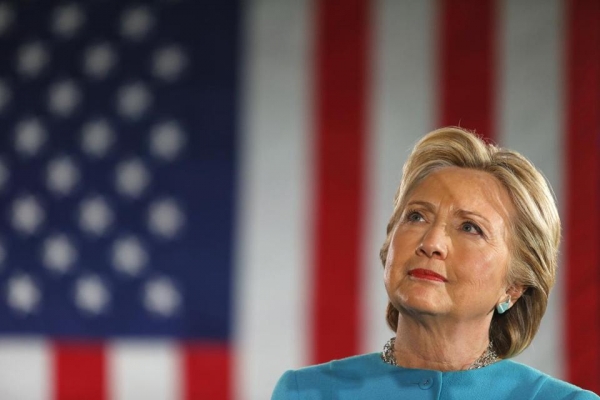On the morning of Nov. 8, I awoke with an overwhelming sense of pride and excitement over the possibility—in my head, it was almost a certainty—of a woman in the White House. After 44 male presidents, an incredibly qualified woman was about to claim the 45th spot and change the trajectory of women’s rights in an unprecedented way. It felt as if American voters were breaking boundaries. Now, all I see are broken hearts.
The election of Donald Trump exposed a world I didn’t believe existed. Residing in my safe-haven at McGill—a liberal university in Montreal, Canada—has made it easy to maintain this perspective. By electing Trump, Americans decided that it is no longer okay to be different. Different, in this case, is anyone who doesn’t identify as a white, heterosexual male. While society may shudder with fear of this nightmarish reality, this realization is crucial to promoting a future where people can learn to understand and love one another. Facing and coming to terms with Trump’s world elicits the question, what now?
Trump’s world is one where women are deemed less worthy than men to occupy positions of power. It is a world in which women are told that they don’t have fundamental rights to their own bodies, a world where sexual assault survivors are shamed and silenced, and a world where grabbing a woman “by the pussy” is just “locker room banter.” The most frightening feature of all of this is that 53 per cent of white women voted to not only condone, but actively participate in this world.
Trump’s world is also one where minorities are denied personal freedoms. Trump actively condemned the Black Lives Matter movement and has a long history of marginalizing black people, for example, through housing discrimination. Mike Pence—now Vice President-elect—staunchly spoke out against the legalization of gay marriage and advocates for horrific gay conversion therapy. Trump blatantly insulted Latino-Americans and Americans of Muslim faith, using racist rhetoric to question their civil liberties. The Klu Klux Klan, a white supremacist group, endorsed Trump as a presidential candidate. I sympathize with the millions of Americans—Republicans and Democrats alike—who, as of Nov. 8, are essentially second-class citizens in their own country.
While Canada may seem far, far away from this nightmare, we can all feel the reverberations. Many did not predict that America would hit such a shocking low—especially not the media. The raw exposure of this terrifying world—one where Donald Trump is the President of the United States—shatters our innocence and naiveté. Clearly, many of us are out of touch with the world we live in.
As Canadians, we can feel comfort knowing that the leader of our country does not denounce our differences or openly question our personal freedoms. However, with this comfort must come the acknowledgement that we, too, have a long way to go—especially in terms of adequate representation in politics. It is crucial to open our eyes and ears to the differences around us. Change will come with the capacity to accept what makes us unique, and to hear disillusionment before it is too late.
It is easy to envision society as continuously moving forward: Barriers get broken, stereotypes are dismantled, people become more open-minded and tolerant, and, as a result, the world is a better place. In 2008, Barack Obama became the first black president, inspiring millions with his message of hope. Obama had broken the “last racial barrier” in American politics. Yet, this election demonstrated that progress is nonlinear, and—even more frighteningly—that the progress Americans thought they had achieved was no more than a façade.
Those of us who stand with her mourn the opportunity to elect the first female president. We also mourn the election of Trump and the subsequent validation of his hate rhetoric. But, going forward, we must work to alter the systemic social norms, standards, and interactions that permit such blatant racism, sexism, and discrimination. With disturbing revelations, however, comes the potential for tangible change. Hate will not win when love and compassion continue to fight back. We can use this message to show the millions of Americans who feel unsafe as a result of this election that they still belong.







